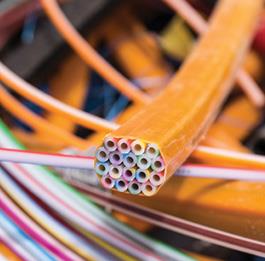14 December 2022

A prepaid and low-cost fibre project has gone live in South African township Kayamandi in Stellenbosch in the Western Cape, with ambitions to roll out connectivity to tens of thousands of previously unconnected residents and spread similar projects across Africa.
The Kayamandi Fibre Project is a collaboration between Isizwe and partners Paygozo and Vulacoin.
As of 7 November, more than 3,000 Kayamandi homes now have access to uncapped prepaid fibre at a cost of just R5 per day with internet speeds of more than 100Mbps.
The goal is to extend the fibre to all 30,000 homes in Kayamandi. Isizwe has open-sourced the township fibre blueprint, providing a step-by-step guide for how to build networks at a low cost without compromising quality and then make it easy for consumers to buy airtime.
“We’re trying to do for fibre what Shoprite Checkers did for food and Capitec did for banking, namely bring down the costs so that more people can have access to more internet, and in the process help entrepreneurs build big businesses that can create job opportunities for thousands of youngsters in townships,” said Steven Briggs, CEO of Isizwe.
Isizwe explained that it can roll out the fibre at such a low cost because townships are traditionally such high-density areas that you can pass more homes per 100m of fibre than you can in regular suburbs, which means you can charge a lower retail rate and get the same return on investment.
“Our goal has been to create a fundable template for township fibre so that local entrepreneurs can access funding to build fibre infrastructure in any township in SA,” explained Richard Henn, CEO of Paygozo, which is the prepaid ISP enabling the Kayamandi Fibre Project. “Fibre internet is not rocket science. It’s about getting the civils properly delivered. Instead of having to hire technicians and engineers and specialized skills, we decided to outsource to ASLA, a company that specializes in building township infrastructure. South Africa has an enormous and under-utilized construction management sector, which we believe can be applied towards fibre deployments, and which can achieve lower build-costs and higher quality than can be achieved in-house.”
Based on the results of the commercial model, Isizwe intends to expand the project to other countries.
“We’re already working on plans to penetrate the metropolitan conurbation stretching from Lagos to Accra. The truth is that most of world is more like South Africa than it is like OECD (Organisation for Economic Co-operation and Development) countries like England. Which means solutions that work in South Africa are more applicable to the world than solutions that work in England,” said Alan Knott-Craig Jr, chairman of Isizwe and the founder of nonprofit sister company Project Isizwe. “At the core of our mission is the fight against digital apartheid. The gap between those that have fast affordable Internet, and those that don’t. Those that have uncapped home fibre, and those that don’t. The Kayamandi Fibre Project is our small way of trying to tackle digital apartheid.”







